Macerate of thyme with honey
Thyme with honey - the ideal remedy for respiratory and lung infections
An anti-inflammatory and a natural antibiotic, effective for respiratory diseases, ranging from simple sore throat, cough, laryngitis, pharyngitis, to lung disease. Treat respiratory infections with honey and thyme!
Servings: 25 servings
Ingredients for a jar of 500 grams, ie about 25 servings, one serving being 1 tbsp (~ 20 grams).
Ingredients
Materials
- glass container with lid (one jar)
Preparation
 Prepare the ingredients. I used fresh thyme, but you can also use dried thyme. I rinsed the thyme under running water, shook it well to remove the water and left it to dry / dry on a paper towel for about 15 minutes. It is important to completely remove excess water from the thyme branches, thus avoiding the possibility of fermentation.
Prepare the ingredients. I used fresh thyme, but you can also use dried thyme. I rinsed the thyme under running water, shook it well to remove the water and left it to dry / dry on a paper towel for about 15 minutes. It is important to completely remove excess water from the thyme branches, thus avoiding the possibility of fermentation.
I cut the thyme twigs with scissors so that they fit in my container.
You can also use dried thyme, but in this case I would recommend grinding thyme.
A honey with a liquid consistency (acacia) is recommended. Put the thyme sprigs in the container. In order to have a pleasant arrangement, as I said, I previously cut the thyme sprigs to the same size.
Put the thyme sprigs in the container. In order to have a pleasant arrangement, as I said, I previously cut the thyme sprigs to the same size. Pour the bee honey, little by little, until the thyme sprigs are completely covered and until the container (jar) is filled.
Pour the bee honey, little by little, until the thyme sprigs are completely covered and until the container (jar) is filled. We close the jar and leave it to macerate for at least 4 weeks, in a ventilated place and protected from light. If we use dried thyme, we leave it to soak for at least 6 weeks. If we choose the option to grind thyme, our macerate can be ready for consumption even faster, somewhere in 2-3 weeks.
We close the jar and leave it to macerate for at least 4 weeks, in a ventilated place and protected from light. If we use dried thyme, we leave it to soak for at least 6 weeks. If we choose the option to grind thyme, our macerate can be ready for consumption even faster, somewhere in 2-3 weeks.
⚠ Remember: the longer it stays to macerate, the more valuable the product will be both in terms of properties and flavor and taste.
⚠ It is recommended to keep closed, in cool and ventilated places, away from light (cellar). It is also recommended to be consumed in a maximum of 2 years!
⚠ The mixture can be consumed as such, both honey and thyme or it can be filtered!
We recommend consuming them together, mixed, both honey and thyme plant. At the end you can mix them with a wooden spoon until the thyme sprigs break into smaller pieces, so that they can be taken in a spoon / teaspoon.
Administration
→ Take 1 tablespoon 3 times a day, preferably 30 minutes before meals. After administration, try to keep the maceration in the throat as much as possible, thus delaying swallowing. This will act as a soothing for the throat.
→ In children, the amount will be halved!
→ After cures of 1-2 months, breaks of at least 2 weeks are recommended!
Observations
→ The combination of honey and thyme is ideal to create a remedy with strong antimicrobial, antibiotic, anti-inflammatory, immunostimulatory, tonic and antioxidant effects ...
→ Practically by maceration with bee honey, the beneficial effects of thyme are potentiated and transferred to honey! Also bee honey preserves very well the properties of the thyme plant.
→ Thyme macerate with honey is considered the best remedy for lungs and respiratory infections! Thyme has an effective antifungal effect against aspergillus spores (mold that gives infections to the lungs). Basically, thyme helps inhibit the growth of bacterial cultures.
→ This maceration / mixture of honey and thyme is considered a real medicine for coughs, sore throats, hoarseness, pharyngitis, laryngitis, asthma, bronchitis ... The cough is calmed immediately, practically, the flavonoids contained relax the muscles involved in the cough process and alleviate local inflammation.
→ Rich in vitamins such as vitamin E (tocopherol), vitamin B3 (niacin), vitamin B6, vitamin C, vitamin A;
→ Rich in minerals such as: iron, zinc, calcium, magnesium, manganese, potassium;
→ Contains: fiber, phytochemicals, tannins, essential oil, terpenes, flavonoids and saponins. The main purpose of terpenes is to protect plants by repelling bacteria, fungi and pests.
→ The active substance that has turned thyme into a healing plant is thymol.
Thymol: active compound that gives the plant (thyme) unique aroma and smell and gives the plant anti-inflammatory and antibacterial properties. Thymol is also a powerful antioxidant that destroys disease-causing free radicals.
→ Honey obtained after maceration of thyme has bactericidal, bacteriostatic, laxative, regenerative and immuno-stimulating properties.
→ Storage and shelf life: Thyme macerate with honey and keep in airtight glass containers, in a ventilated place and away from light (cellar) and it is recommended to consume it in maximum 2 years after preparation!
Effects and benefits
Main properties:
- antimicrobial, bactericidal, bacteriostatic;
- antibiotic;
- antiviral;
- anti-inflammatory;
- antitussive;
- spasmolytic;
- antioxidant;
- immunostimulatory tonic;
- regenerative;
- laxatives,
- antifungal.
Ideal for respiratory and lung infections:
- good in respiratory infections, lung diseases;
- effective antifungal effect against aspergillus spores (mold that gives infections to the lungs);
- treats sore throat, hoarseness, cough, pharyngitis, laryngitis, asthma;
- good expectorant;
- treatment for bronchitis, whooping cough and inflammation of the mucous membranes of the inflammatory tract;
- calms and relaxes the neck area;
- attenuates local inflammation;
Supports the digestive system:
- stimulates metabolism;
- adjuvant in diseases of the digestive tract such as: intestinal fermentation, bloating, flatulence, digestive infections, nausea and diarrhea;
- laxative;
- adjuvant in the treatment of abdominal colic, dyspepsia and hemorrhoids;
- good in case of intoxication;
Supports the cardiovascular system:
- supports heart health (being rich in magnesium);
- regulates hypotension (being rich in potassium);
- good in circulatory disorders
- good in peripheral circulatory failure;
Supports the nervous system:
- tonic on the nervous system;
- good for headaches, migraines;
- fights mental and physical fatigue;
Recommended in rheumatic diseases:
- reduces inflammation in the body;
- beneficial in rheumatism, gout, sciatica;
Other:
- good for oral hygiene;
- good in toothache;
- good in edema;
- helps the body fight infections;
- adjuvant in colds and flu, fever;
- increases immunity and resistance to infections;
- prevents skin aging, being rich in vitamin E;
- good for eyesight, due to vitamin A;
- antioxidant that destroys free radicals;
- rich in vitamins: E, B3, B6, C and A;
- rich in minerals: iron, zinc, calcium, magnesium, manganese, potassium;
- contains fiber, phytochemicals, tannins, essential oil, terpenes, flavonoids and saponins;
- contains thymol , an active compound that gives the plant anti-inflammatory, antibacterial, antioxidant properties (+ unique aroma and smell);
Side effects
- allergies, for those allergic to ingredients;
Contraindications
- contraindicated for those with allergies to thyme and honey
- thyme may increase the risk of bleeding in people taking blood thinners (eg aspirin, warfarin).
- Thyme should be avoided by people suffering from hormonal diseases or undergoing treatment with synthetic hormones.
- contraindicated in pregnant and lactating women,
- contraindicated for people with diabetes (only with the guidance of a doctor),
- contraindicated for those with gastritis, irritable bowel syndrome,
- contraindicated for those with hypertension, mental hyperexcitability, ...
- contraindicated for those with liver failure.
→ During the Romans, thyme was used to wash and disinfect bandages used on wounded soldiers. Basically, a mixture of water and thyme was made and the bandages were washed.
→ Thyme is known as one of the most effective plants for lungs and respiratory infections!
FAQ 💡❓
Why is thyme honey macerate considered a natural “antibiotic”?
➡️ Thyme contains essential oils rich in thymol and carvacrol—powerful antimicrobial compounds that help destroy bacteria and viruses in the respiratory tract. Combined with raw honey, the macerate becomes a complex natural remedy effective for coughs, sore throats, and persistent colds.
What makes this preparation different from a simple thyme tea?
➡️ Through maceration, the active compounds of thyme are extracted slowly and fully into the honey, preserving enzymes, antioxidants, and volatile oils. Unlike boiling, which destroys some nutrients, maceration keeps the plant’s full therapeutic strength intact.
How long should it macerate to get maximum benefits?
➡️ Ideally 4–6 weeks in a tightly sealed glass jar kept in a cool, dark place. Fresh thyme gives a stronger aroma, while dried thyme produces a more concentrated remedy due to its higher essential oil content.
Which type of honey works best?
➡️ Acacia honey is ideal for its mild taste and smooth texture. Linden or fir honey can also be used for a stronger aroma and enhanced antiseptic effects on the respiratory system.
Can thyme honey macerate replace pharmacy cough syrups?
➡️ In many cases, yes. It acts as an expectorant, helps thin mucus, and soothes throat inflammation without synthetic additives. It’s excellent for dry or spasmodic coughs and throat irritation caused by cold air or pollution.
What other benefits does it have beyond respiratory relief?
➡️ It aids digestion, reduces bloating and cramps, fights fatigue, supports liver detoxification, and regulates blood pressure. Thyme also acts as a general tonic, helping the body recover after illness or physical strain.
Can it be used for immunity and detox support?
➡️ Absolutely. A teaspoon taken every morning on an empty stomach strengthens immunity, alkalizes the body, and helps eliminate toxins. It can also be combined with propolis or lemon for a more powerful effect.
Is it true that it also helps reduce stress and improve sleep?
➡️ Yes, thyme has a mild calming effect on the nervous system. Thymol and carvacrol reduce oxidative stress and promote better sleep. Taking a teaspoon before bedtime can help you relax and fall asleep more easily.
Can it be used externally too?
➡️ Yes. It can be applied to minor wounds, insect bites, or skin irritations thanks to its antiseptic and healing properties. Mixed with coconut oil, it becomes a soothing natural balm.
Is it suitable for children and the elderly?
➡️ Yes, with adjusted doses. Children over 3 can take half a teaspoon twice a day, while elderly people can use it daily to boost immunity and digestion naturally.
Can it help with detox or weight-loss programs?
➡️ Yes, in small amounts. It stimulates metabolism, supports digestion, and helps reduce sugar cravings. Taken in the morning with warm water and lemon, it can aid gentle detox and weight balance.
Are there any contraindications or medication interactions?
➡️ Avoid if allergic to honey or plants in the mint family (Lamiaceae). It may interact slightly with hormonal or anticoagulant medication, so it’s best to seek medical advice in such cases.
Why is it called an “old-fashioned” or “timeless” remedy?
➡️ Because the recipe dates back centuries, used in folk medicine as a winter tonic and cough relief. Modern studies confirm that thyme and honey truly have antibacterial and healing effects.
How should it be stored and for how long?
➡️ Keep it in a glass jar, away from light and moisture, below 20°C (68°F). If kept clean and dry, it maintains its active properties for up to 2 years.
Can it be used in cooking?
➡️ Yes! Thyme honey macerate adds a unique flavor to teas, yogurts, salad dressings, or marinades, while enriching meals with natural health benefits.
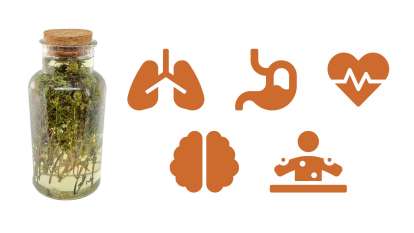
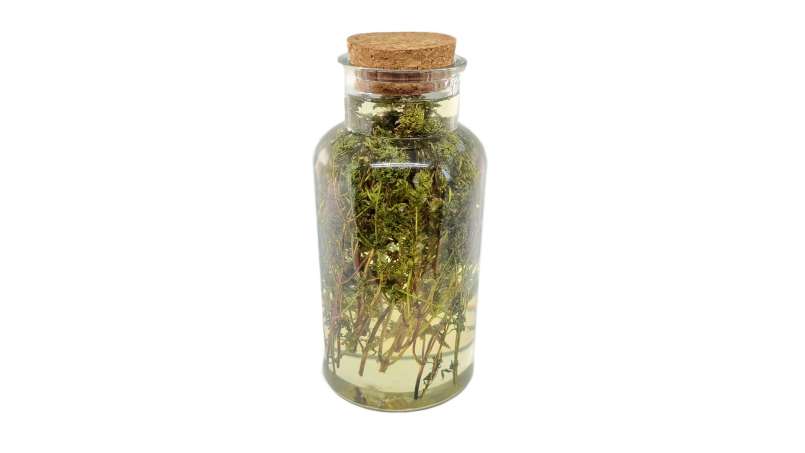
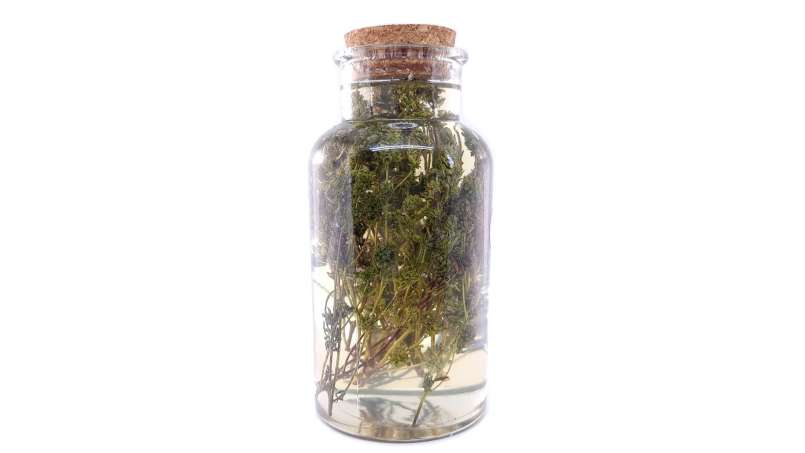
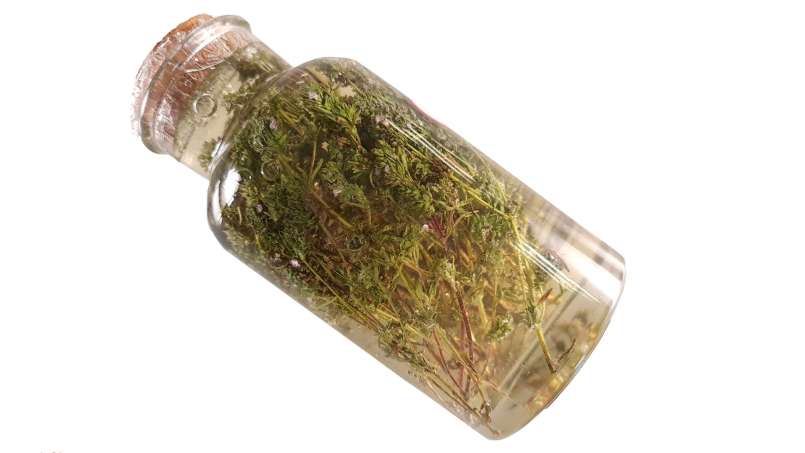
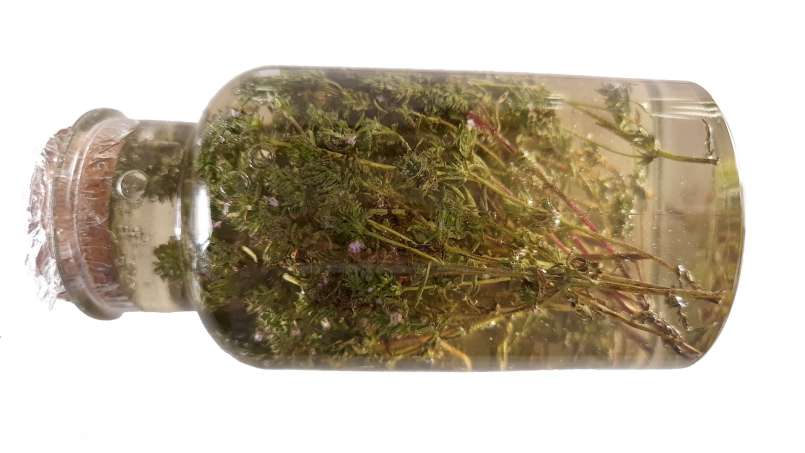
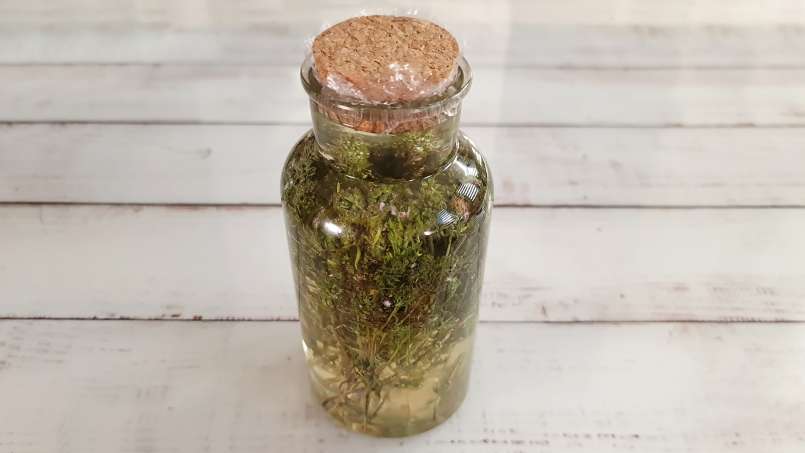
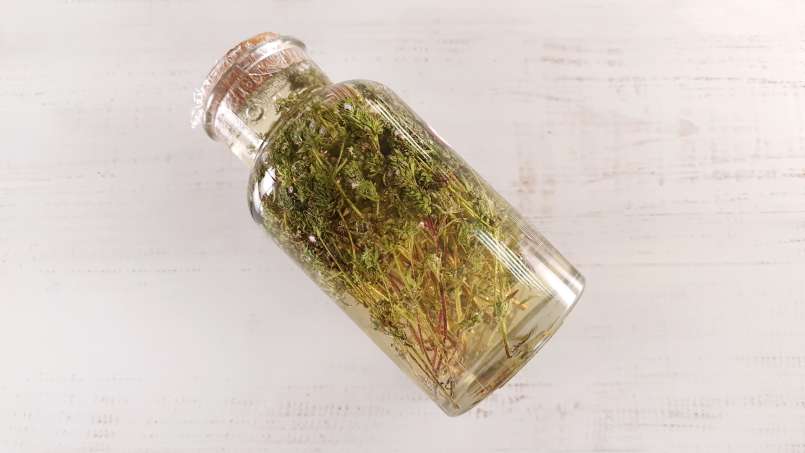
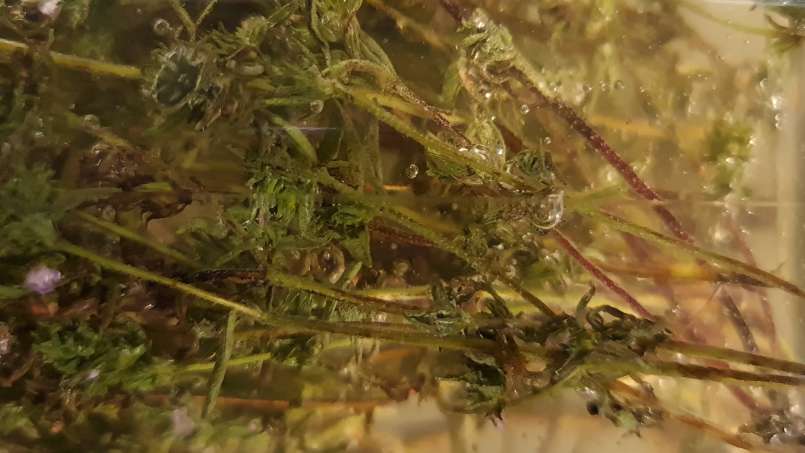
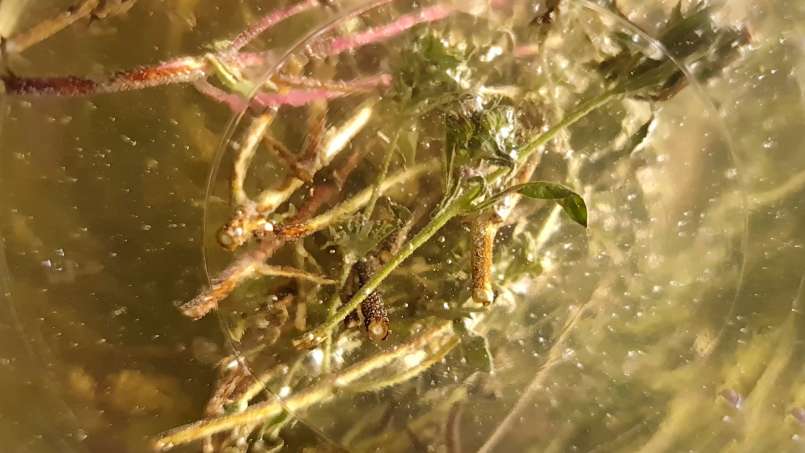
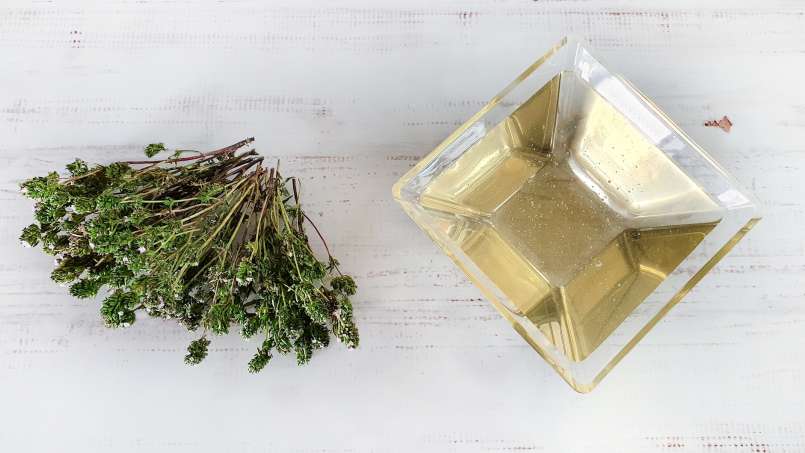
Comments